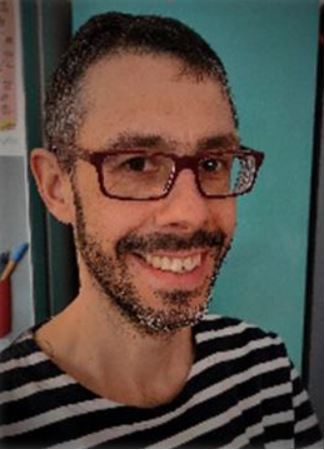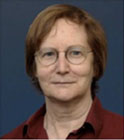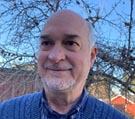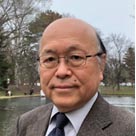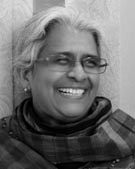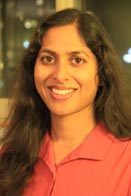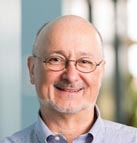 |
ISCApad #290 |
| Saturday, August 06, 2022 by Chris Wellekens |
2 ISCA News
| 2-1 | Message from ISCA president Prof. Sebastian Möller
Dear friends of ISCA,
The month of August is normally amongst the hottest in the northern hemisphere, and it is also a hot month regarding the preparation of Interspeech. Many of you will already have booked your travel to Incheon, and indeed we hope that the majority of participants will be able to attend our flagship conference in person. Others are hesitant or unable to travel, and the organizers will do their utmost to ensure that also for them Interspeech 2022 will be a great experience.
ISCA is changing as well. Following a request from organizers and TPC Chairs of Interspeech 2021 and previous conferences, as well as observations we have made during the past years with increasing paper submission numbers, requiring more streamlined review processes, ISCA came to the conclusion that we need to have more continuous support for future conference organisers within ISCA. This is why the board decided to fund a continuous, half-time position for someone to organise the scientific coordination of Interspeech conferences. To be clear, the scientific part of the review process will remain in the hands of the TPC Chairs, Area Chairs, and reviewers, but the myriad processing steps will in the future be coordinated and supported by a continuous scientific coordinator employed by our association.
I am very happy to announce that Antoine Serrurier has agreed to take up this role from September 2022 onwards. Antoine is actually a long-standing member of our community: He obtained a PhD in speech sciences from the University of Grenoble, France, in 2003, for his work on 3-dimensional modelling of the speech organs from MRI images for nasal production. Since then, he worked in several institutions in France, UK, and Germany, in the domain of speech sciences, covering among others speech production, articulatory modelling, acoustics, phonetics, medicine, anatomy, palaeoanthropology, medical imaging, synthesis, and machine learning. He has published in many journals and at several conferences, including Interspeech, successfully managed international research projects, and organised international workshops. He is very keen on taking up his new role for ISCA, although he will for the time being stay connected to his own research at the Clinics for Phoniatrics, Paedaudiology and Communication Disorders of RWTH Aachen University. I am very happy that Antoine has joined our team, and will – in addition to Emmanuelle Foxonet (Manu), be the second employee in the 34 years of history of ISCA.
Apart from that, I hope that you can regain your forces after such a long period of Covid19-related restrictions, and that I will see most of you in person at Interspeech 2022 in Incheon, Korea. I wish you a good read of this month’s ISCA pad, as always nicely compiled by Chris Wellekens.
Sebastian Möller ISCA president Sebastian Möller ISCA President
| |||||
| 2-2 | Speech community in mourning: Professor Sadaoki Furui passed away Professor Sadaoki Furui left the speech community to which he gave so much as a researcher, as a professor,
as a guide, as a social gentleman and also as a friend. He was ISCA president from 2001 to 2005. ISCA will
honour him at next Interspeech and in the next ISCApad issue.
Sebastian Möller Chris Wellekens,
President ISCApad editor
| |||||
| 2-3 | In Memoriam Anne Cutler (1945 – 2022) In Memoriam Anne Cutler (1945 – 2022) In early June, professor Anne Cutler suddenly passed away shortly after having fallen ill on a trip to the Netherlands. Her first time in the Netherlands since the pandemic. Anne Cutler was a highly valued member of the Internationa l Speech Communication Association (ISCA). In 2014 she received ISCA's highest honour, the ISCA Medal for Scientific Achievement 'for charting the variation of speech perception across languages, and for her leadership in the field of speech perception research'. Anne was a world-renowned psycholinguist. She helped shape the field of psycholinguistics through her research, which centred on how humans acquire and recognise spoken language. She pioneered many different research areas and was at the fore-front of many others: child language acquisition, the role of the native language on non-native speech processing, the role of prosody in spoken language learning and processing, to name but a few. Anne obtained her PhD from the University of Texas at Austin where she was one of the first PhDs in the new field of psycholinguistics. She completed her post-doctoral training at MIT, and then worked at the Medical Research Council – Cognition and Brain Sciences Unit, Cambridge UK. From 1993 to 2013 she was the Director of the Max Planck Institute for Psycholinguistics, Nijmegen, the Netherlands. After German law required her to retire (for which she was absolutely not ready she once told me), she went back to her native Australia to continue her research as a research professor at the MARCS Institute, University of Western Sydney. While Anne was a leader and pioneer in our field, she wasn’t only known for her research. She also played an important role within our community. Although Interspeech hosts research from speech science and speech technology, the fields are largely distinct. Anne has been instrumental in bridging these two complementary and important research areas. She was interested in understanding more about automatic speech processing and at the same time she reached out to people from the speech technology field to educate them on human speech processing. For example, together with Roger K. Moore she gave a tutorial on automatic and human speech processing at one of the Interspeech conferences, which was well-received. Anne really stood at the heart of the ISCA community. Anne is remembered as a strong woman, an amazing scientist, having a great sense of humour, a brilliant mind, easy to talk to, and a great mentor for countless students, young researchers, and colleagues. She built a huge academic family, and I am honoured to be part of that special family. Anne also strongly believed in empowering women and helping women researchers, and as such has been an inspiration and role model for many more junior female researchers. Anne will be dearly missed and we are forever grateful for Anne's leadership and for being such an amazing role model to all those she inspired, as well as future students and researchers that will learn and benefit from her lifelong contributions to psycholinguistics.
Anne Cutler ISCA Medal 2014 Citation For charting the variation of speech perception across languages and for her leadership in the field of speech perception research. Biography Anne Cutler is professor in the MARCS Institute University of Western Sydney and Processing program leader of the newly established ARC Center of Excellence in the Dynamics of Language. She sudied in Australia, Germany and the US and worked in the UK (Sussex, Cambridge) and from 1993 to 2013 as director of the Max Planck Institute for Psycholinguistics in Nijmegen, The Netherlands. Her research of which her book Native Listening (MIT Press, 2012) gives an overview, centres on human listeners' recognition of spoken language. It was tended over the years to involve a great many cross-linguistic comparisons (e.g. English, Dutch, German, Japanese, Cantonese, Korean, Sesotho, French, Spanish, Italian, Finish, Polish, Arabic, Telugu, Berber,-so far). ISCA Vice-President And one of Anne’s many academic “daughters”
An in memoriam from her university: https://www.westernsydney.edu.au/research/vale-distinguished-professor-cutler If you want to leave memories or condoleances: https://www.mpi.nl/memories-of-anne-cutler
| |||||
| 2-4 | 2022 ISCA FELLOWS Announced
Over the past few months, ISCA has been seeking nominations and endorsements for this year’s ISCA Fellowship awards. The ISCA Fellows Selection Committee maintains a rigorous process of evaluating all nominations (more details are found on the ISCA webpage at: https://www.isca-speech.org/iscaweb/index.php/honors/fellows). After extensive evaluations and reviews, the following six distinguished researchers will be elevated to the status of ISCA Fellow for 2022. Their citations as well as affiliations are highlighted below. Please join me in congratulating these well deserving colleagues for their research contributions to the field of speech communication and technology! All will be recognized at INTERSPEECH 2022 in Incheon, Korea, this fall.
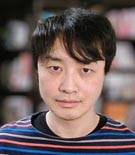
As always, we welcome feedback and input from the ISCA community – if you have suggestions for our society or want to be involved, please let us know!
Phil Green (ISCA Fellows Board Member) Sebastian Möller (ISCA President)
| |||||
| 2-5 | ELRA/ISCA Special Interest Group: Under-resourced Languages (SIGUL) ELRA/ISCA Special Interest Group: Under-resourced Languages (SIGUL) Created in April 2017, SIGUL is a joint Special Interest Group of the European Language Resources Association (ELRA) and of the International Speech Communication Association (ISCA). This year, SIGUL enters the fifth year and now has more than 300 members. The SIGUL Board is elected every two years, and last year SIGUL had a new Board officer: Chair and ISCA liaison representative: Sakriani Sakti (JAIST, Japan) Co-chair and ELRA liaison representative: Claudia Soria (CNR-ILC, Italy) Secretary: Maite Melero (Barcelona Supercomputing Center, Spain)
SIGUL has organized various events, including the Spoken Language Technologies for Under-resourced languages (SLTU) Workshop Series, which has been organized since 2008, and Collaboration and Computing for Under-Resourced Languages (CCURL), which has been organized as LREC Workshop since 2014. From this year, the tradition of CCURL-SLTU will be united into one SIGUL Workshop and planned to be held as a Satellite Workshop of LREC or INTERSPEECH. The 1st Annual Meeting of the ELRA/ISCA Special Interest Group on Under-Resourced Languages (SIGUL 2022) will be held as Satellite Workshop of LREC 2022, Marseille (FR), 24-25 June 2022. The SIGUL venue will provide a forum for the presentation of cutting-edge research in NLP/SLP for under-resourced languages to both academic and industry researchers, and also offer a venue where researchers in different disciplines and from varied backgrounds can fruitfully explore new areas of intellectual and practical development while honoring their common interest of sustaining less-resourced languages. Topics include but are not limited to:
We also invite position papers on methodological, ethical, or institutional issues. Important Dates:
More details can be found on the workshop web page: https://sigul-2022.ilc.cnr.it/
SIGUL Board Sakriani Sakti Claudia Soria Maite Melero
| |||||
| 2-6 | ISCA Language SIGS ISCA supports speech communication research activities in various languages. The individual languages have equal interest, but they may involve have different technical or scientific problems. For example, some languages are tonal, while others are not; Some languages have only one writing system, while others have several. In the ISCA community, we have 6 language Special Interest Groups (SIGs) for Chinese, French, Italian, Iberian, Indian, and Russian. Each SIG is organised by researchers who speak the language of interest as L1 and others who have a technical or scientific interest in the language. Each SIG sponsors domestic and international research activities, and representative members of the SIGs attend a Lang SIG meeting every year during the INTERSPEECH conference. In this meeting, recent activities of each SIG are reported, and new ideas are exchanged. We also review what ISCA can do for the SIGs and what the SIGs can do for ISCA. Each SIG has its own web page, and you can visit the pages here. Prof. Nobuaki MINEMATSU The University of Tokyo Japan
| |||||
| 2-7 | ISCA Special Interest Group (SIG) 'Spoken Language Translation'
ISCA SIG “Spoken Language Translation” Aims. The SIG SLT covers all aspects of spoken language translation — simultaneous translation and interpretation, speech dubbing, speech-to-text translation, speech-to-speech translation, cross-lingual communication including paralinguistic, emotional or multimodal information, and related areas SIG SLT will (a) provide members of ISCA with a special interest in spoken language translation and its related areas with a means of exchanging news of recent research developments and other matters of interest in spoken language translation; (b) organize challenges and evaluation campaigns; (c) sponsor and organize the International Conference on Spoken Language Translation (IWSLT), meetings, satellites, and tutorial workshops in spoken language translation, operating within the framework of ISCA's by-laws for SIGs; and (d) make available open-source code and data resources, best practices and tools, and evaluation metrics relevant to spoken language translation.
Motivation. Recent interest in speech translation and simultaneous translation by machine has been growing explosively, due to continued performance advances and a growing international need for simultaneous translation and interpretation, speech dubbing, speech-to-text translation, speech-to-speech translation, cross-lingual communication including paralinguistic, emotional or multimodal information, and related areas. The under-covered elements in the current research are, for instance, incremental simultaneous speech-to-speech translation, paralinguistic translation, speaking style translation across languages. The proposed SIG will be organized by the members who are interested in spoken language translation/interpretation from various related areas such as ASR, TTS, and MT. SIG SLT emerged from over two decades of organizing the International Conference on Spoken Language Translation (IWSLT) and its predecessor C-Star, scaling operations in response to significant growth in the field. The organizers of IWSLT and partners believe it is now time to join with ISCA by creating an ISCA SIG. IWSLT has a 15-year track record of profitability; it runs the premier benchmarking campaign on spoken language translation annually accompanied by an international scientific conference to present and discuss results.
| |||||
| 2-8 | ISCA needs your help! ISCA needs your help!
For the smooth running of our organization and our flagship conference Interspeech, we’ve been relying on lots of different electronic tools. Unfortunately, many of these tools are outdated and/or did not scale up with the growth of our community. Moreover, our website and communication channels get do with a make-over.
In order to improve the services for the benefit of the entire community, we are looking for volunteers who would like to help with the task of planning a new IT infrastructure for ISCA. This infrastructure might include the review system, the reviewer database, membership administration, web site, communication tools, as well as other administrative IT infrastructures still to be defined. Requirements should be collected from members of the ISCA board, past and present Interspeech organisers, and our community, and they should be mapped to the possibilities ISCA has, considering also personal issues such as frequently-changing board members, absence of continuous IT support, etc.
Would you like to help in the planning of the new IT infrastructure? Please send an email to president@isca-speech.org indicating why you are interested, and a little bit of your personal background relevant to this activity.
Thanks! Odette & Sebastian
| |||||
| 2-9 | ISCA-PEDRAC: a new service of ISCA. ISCA-PECRAC (Postdoc & Early Career Researcher Advisory Committee) is pleased to invite postdoc & early career researchers to participate in the 1st Early Career Researcher Annual Gathering @ Interspeech 2021 (online this year).
The Early Career Researcher Annual Gathering aims to provide an opportunity for postdoc & early career researchers to meet and communicate at INTERSPEECH. In the framework of ISCA-PECRAC, we would like:
1st Early Career Researcher Annual Gathering @ Interspeech 2021 Time : August 30 at 18:00 - Brno time (preliminary slot) Location : Online Program :
Contacts: Yaru Wu (yaru.wu@sorbonne-nouvelle.fr) Berrak Sisman (berrak_sisman@sutd.edu.sg)
| |||||
| 2-10 | ISCA social networks We encourage all members tokeep contact with ISCA via our social nets. Also you will bde kept informed about all events on our website. This is particularly important in this time where due to the coronavirus, many modifications may be brought to the conference.
ISCA Facebook : https://www.facebook.com/iscaspeech/ ISCA Twitter : https://twitter.com/ISCAFOX ISCA SAC Student Facebook : https://www.facebook.com/groups/98794207409/ website : www.isca-speech.org
| |||||
| 2-11 | Code-of-Conduct for Conference and Workshop Attendees Code-of-Conduct for Conference and Workshop Attendees
| |||||
| 2-12 | Code-of-Ethics for Authors (updated) Code of Ethics for Authors
| |||||
| 2-13 | Women in Speech Research ISCA is committed to supporting diversity in speech communication, and celebrating speech
| |||||
| 2-14 | Speech Prosody SIG calls for election of officers Dear Fellow Members of SProSIG,
The constitution of the Speech Prosody SIG calls for election of officers once every two years. Accordingly, acting on behalf of the Permanent Advisory Council (PAC) of SProSIG, I welcome nominations for officers for the 2022 - 2024 term. The PAC has approved the following schedule and procedure:
July 11 - July 29: Nominations for SProSIG officers may be sent to me, Past President of SProSIG, at hirose@gavo.t.u-tokyo.ac.jp (also cc to khirose@nii.ac.jp to prevent mail delivering errors). Please use the nomination form at http://sprosig.org/assets/nomination-form.doc . Nominations must be submitted by a SProSIG member (self-nominations are accepted), and must include a 50-200 words statement of qualifications and vision. The person being nominated must be a SProSIG member, and must agree to hold the position if elected.
July 29 – August 5: The current officers were first elected in 2018 and re-elected in 2020. They are eligible to be re-elected, and since they have all expressed the willingness to serve another term, if there are no other nominations, the Permanent Advisory Committee will approve the current officers to serve a third term. The current officers are Plinio Barbosa, Aoju Chen, Hongwei Ding, Martine Grice, and Nigel Ward (Chair). Otherwise,
August 5 - August 26. The Permanent Advisory Committee will post the candidates' statements at sprosig.org and an election will be held. The new officers will then be announced, and decide among themselves their roles.
August 31. The role of the new officers will be decided after election.
Sincerely, Keikichi Hirose Past President of SProSIG
| |||||
| 2-15 | SProSIG Officers Dear Fellow Members of SProSIG,
|

